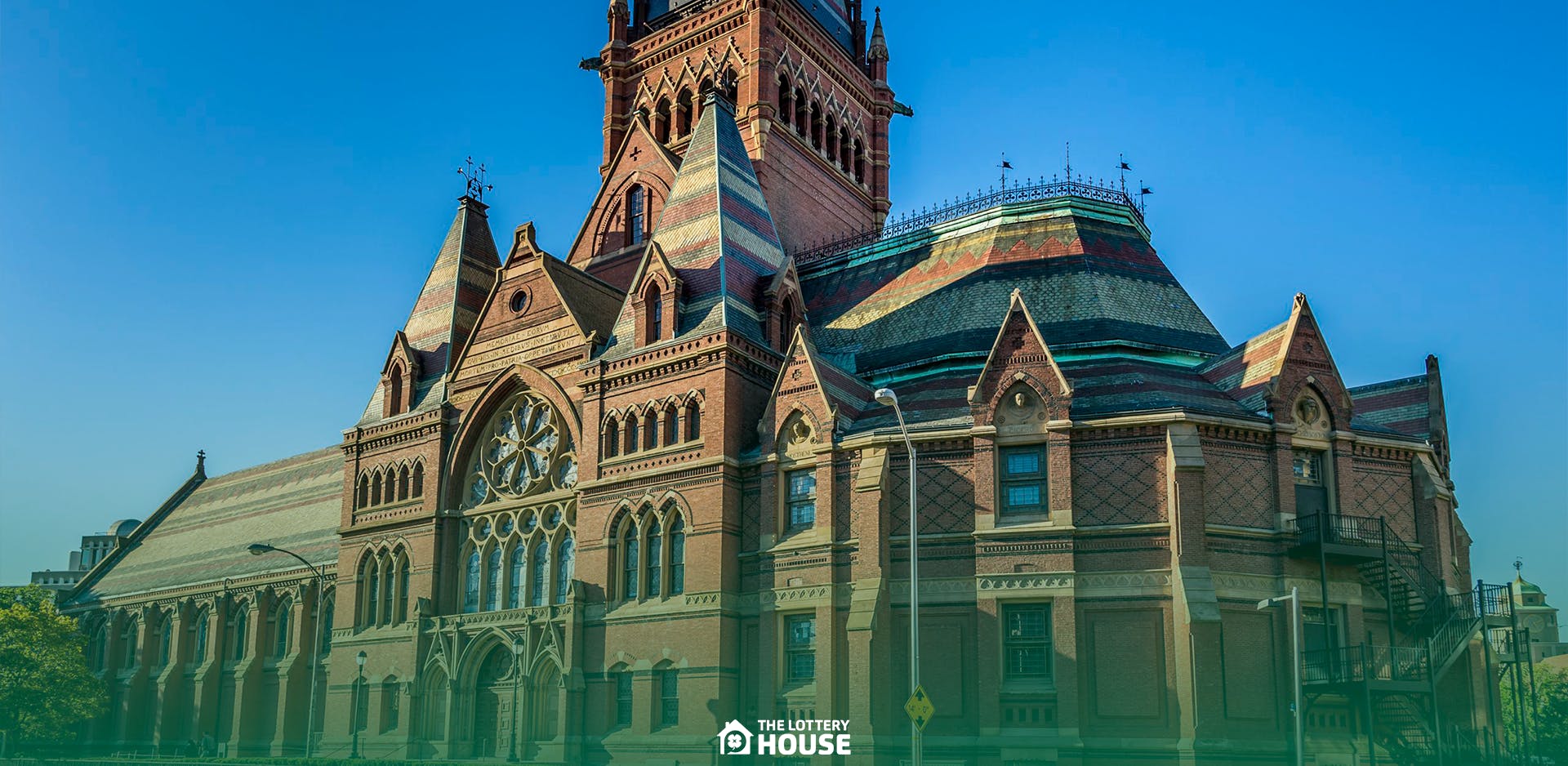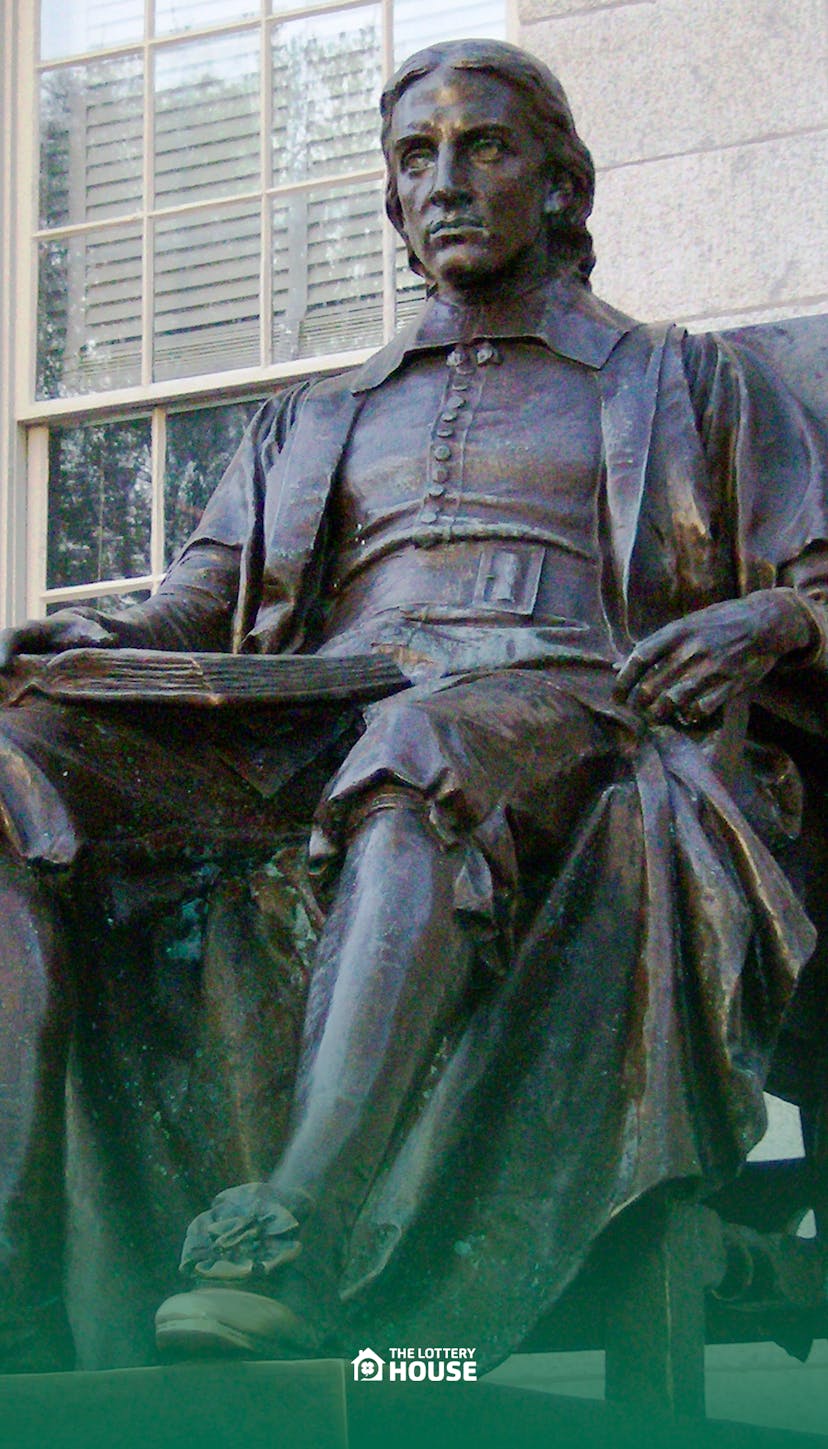The Role of Lotteries in the History of Harvard
Find out how Harvard became the most respected university in the world with the help of lotteries!
The Lottery House
tags:
education
history

Find out how Harvard became the most respected university in the world with the help of lotteries!
Harvard University is one of the world's most prestigious educational institutions, with a rich and influential history. Founded in 1636 in Cambridge, Massachusetts, it is the oldest institution of higher education in the United States.
Harvard's history dates back to the early days of American colonization. The Reverend John Harvard, a young English cleric, left his legacy by donating his estate and personal library to the institution. In his honor, the institution was renamed Harvard University.

The Beginning
During the early years, the university faced significant financial challenges. It was in this context that lotteries played a crucial role in its development. At the time, lotteries were a popular way to raise funds for various causes, including education. In 1745, the first official lottery was authorized by the Massachusetts General Assembly to raise funds for Harvard. This initiative was the turning point for the institution and potentially what brought Harvard to the present day as the leading name in universities worldwide.
The lotteries allowed the university to gain enough financial resources to expand its facilities and improve its academic programs. The revenues generated by the lotteries were used to build buildings, establish scholarships, and strengthen the university's infrastructure. The reliance on lotteries for funding became a significant feature of Harvard's history and showed the world how important lotteries are for education, research, and human development.
As the country grew and developed, so did Harvard. During the 19th century, the university expanded its curriculum, covering a wide range of academic disciplines. Today, Harvard has the world's leading schools of politics, business, law, and health. Its reputation grew and attracted students and professors from around the globe.
Although the financial support from lotteries was what boosted Harvard's history, other investments were also made over the decades. Over time, state and private financial support also became very important for the university's operation. This allowed Harvard to diversify its funding sources, adding them to lottery funding.
Harvard's Role in U.S. History
Harvard also played a significant role in historical events in the United States. During the American Revolution, the university served as a center of activism and intellectualism, with many of its students and alumni playing active roles in the independence movement.
In the 20th century, Harvard established itself as a leader in research and innovation. The university played a crucial role in World War II, contributing to the war effort through scientific research and technology development.
Today, Harvard University is known for its academic excellence and intellectual leadership. It houses various schools, including the Faculty of Arts and Sciences, Law School, Medical School, and the Harvard Business School, among others. Its alumni include political leaders, scientists, entrepreneurs, and renowned artists.
The numbers of recipients of awards such as the Nobel, Pulitzer, and Turing give a clue about the reasons behind the university's good reputation. More than 150 Nobel laureates have passed through Harvard, more than at any other institution in the world. So far, there are also 48 Pulitzer recipients (for Journalism and Literature), 14 Turing (known as the "Nobel of Computing"), and 18 Fields Medal winners, the most prestigious award in Mathematics.
In total, the American institution has over 371,000 graduated students. And among them, eight presidents of the United States, like John Kennedy, George W. Bush, and Barack Obama.
In addition, important intellectuals, scientists, political leaders, and celebrities graduated from there. Of the total students graduated from Harvard, about 59,000 are foreigners, from more than 200 countries. Currently, the university reports having about 5,000 international students, from 142 countries, and about 1,200 of them are undergraduates. That is, about 22% of Harvard students come from other countries.
The Result of its Excellence
Throughout its history, Harvard has strived to maintain its commitment to academic excellence, innovative research, and service to society, and to this day we can contemplate the brilliance of the institution. An important example was the recent creation of an Artificial Heart Valve, the result of years of research and development at the University.
On June 9, 2023, some newspapers reported the creation of a synthetic heart valve from Harvard designed to grow in sync with the human body. The FibraValve, an advance in the artificial heart valve, could transform the lives of growing children, eliminating the need for risky replacement surgeries.
Through a spun fiber method, this implant can be manufactured in minutes, allowing the delicate shaping of the valve flaps at the microscopic level - ready to be colonized by the patient's living cells, developing alongside them as they mature.
For brilliant achievements like this, the University continues to attract talented students and academics from around the world, promoting the dissemination of knowledge and driving positive change in all areas.
Although lotteries played an important role in Harvard's initial funding, the university has developed beyond this dependence, seeking more diversified sources of funding. Today, much of the university's funding also comes from donations, properties, endowments (heritage funds), and tuition fees.
The complete history of Harvard University is a fascinating narrative of perseverance, academic excellence, and the continual pursuit of knowledge. From its humble beginnings to its prominent position in the global educational landscape, Harvard remains an iconic institution that shapes the future of education and society.
The success of Harvard, like many other universities around the world, stems from the funding of a lottery that gave the institution the means to develop its methodology and create a true empire that has transformed millions of people around the world.
Lotteries change lives and they can change yours too! Play now and have a chance to be part of this change! Just remember, play responsibly and respect your financial limits!